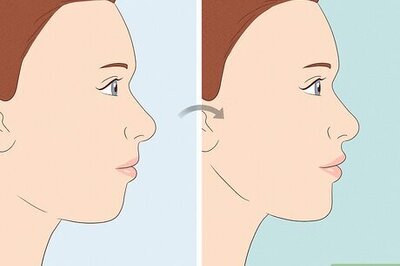
views
Knee arthritis is a common condition that affects millions of people worldwide. It is characterized by the degeneration of the cartilage in the knee joint, which can lead to pain, stiffness, and difficulty in performing daily activities. The condition is more common in older adults, but it can also affect younger individuals as a result of an injury or a genetic predisposition.
Traditionally, knee arthritis has been treated with surgery, such as total knee replacement. However, surgery is not always necessary, and there are several non-surgical options available for managing the condition. These options can help to reduce pain, improve function, and slow the progression of the arthritis.
Dr Samarth Arya, Consultant Orthopaedics, Joint Replacement & Robotic Surgery, Sparsh Hospital, Bengaluru discusses the various non-surgical management options for knee arthritis and provides guidance on how to determine which treatment is best for you.
Also Read: Backpacking Myths That Shouldn’t Be A Barrier To Your Travels
Important factors
- Control of Body Weight Body
- Obese or overweight patients should follow a weight loss program before an adequate multidisciplinary assessment.
Conservative Treatments:
- Physical Agents: Consider the use of physical agents for the treatment of knee osteoarthritis. Interferential therapy, laser therapy, magnetotherapy and application of vibrational energy seem to be the most effective physical agents.
- Therapeutic Physical Exercise: Therapeutic exercise, which can even be performed at home, is recommended for treating patients with knee osteoarthritis.
- Mind-Body Exercises: Mind-body exercises (such as Hatha Yoga) can be taken into consideration as a therapeutic approach for patients with knee osteoarthritis.
- Muscle-Strengthening Exercises: Muscle-strengthening exercises (with or without other types of therapeutic exercises), with specific characteristics (type of resistance, type of contractions, method of supervision, intensity and duration of exercise program) can be indicated to treat knee osteoarthritis.
- Aerobic Exercises: A short-term program of aerobic exercises (with or without muscle-strengthening exercises) can be considered in order to reduce pain, improve physical function and quality of life of people with knee osteoarthritis.
- Hydrokinesitherapy: can be used for patients with knee osteoarthritis.
- Balneotherapy- Balneotherapy represents a complementary approach with short and long-term efficacy in terms of pain relief and articular function in patients with knee osteoarthritis. It is indicated above all in patients with comorbidities and/or contraindications for pharmacological treatment.
- Acupuncture- At present, there is little reliable evidence on the use of acupuncture in the management of patients with knee osteoarthritis.
- Patellar Taping- At present, there is little reliable evidence on the use of patellar taping in the management of patients with knee osteoarthritis.
- Intra-Articular Injections-
- Platelet rich plasma
- Corticosteroids
- Hyaluronic AcidDrugs to reduce cartilage damage-
- Glucosamine ,Chondroitin
Pharmacological Treatment:
- Oral Non-Steroidal Anti-Inflammatory Drugs
- Paracetamol
- Topical Preparations.
Mechanical Aids:
- Walking Aids (walking sticks, crutches, walking frames, etc)
- Braces
- Foot Orthoses
Read all the Latest Lifestyle News here




















Comments
0 comment